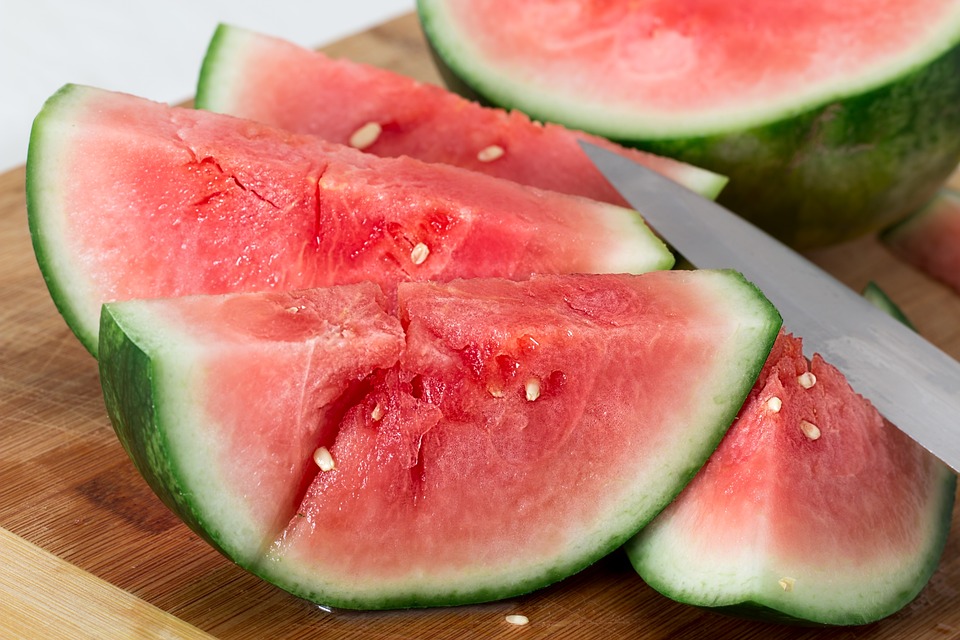gastric sleeve Blockage Symptoms: Recognizing the Signs
Gastric sleeve surgery, also known as sleeve gastrectomy, is a popular procedure for weight loss. While it offers many benefits, it is essential to be aware of potential complications that may arise, including gastric sleeve blockage. In this article, we will explore the symptoms of gastric sleeve blockage, helping you recognize the signs and seek prompt medical attention when necessary.
1. Understanding Gastric Sleeve Blockage
Before delving into the symptoms, let us first understand what gastric sleeve blockage entails. During a gastric sleeve procedure, a large portion of the stomach is removed, leaving a smaller, sleeve-shaped pouch. This pouch restricts the amount of food you can consume, leading to weight loss. However, in some cases, the opening between the stomach and small intestine can become blocked, causing digestive problems.
2. Early Warning Signs
Recognizing the early warning signs of gastric sleeve blockage is crucial for prompt intervention. One of the initial symptoms to watch out for is persistent nausea and vomiting. If you find yourself frequently experiencing these symptoms after meals, it could indicate a blockage. Additionally, feeling full quickly, even with small amounts of food, may suggest a potential problem.
3. Abdominal Discomfort
As gastric sleeve blockage progresses, you may start experiencing abdominal discomfort. This discomfort can range from mild to severe and may present as pain or a feeling of pressure in the upper abdomen. Some individuals describe it as a sensation of food getting stuck or trapped in the chest or throat. If you notice such discomfort, it is advisable to consult your healthcare professional for further evaluation.
4. Difficulty Swallowing
One of the hallmark symptoms of gastric sleeve blockage is difficulty swallowing, medically known as dysphagia. This occurs when the opening between the stomach and small intestine becomes partially or completely obstructed. You may find it challenging to swallow both solids and liquids, often experiencing a sensation of food becoming stuck in your throat. If you encounter persistent difficulties with swallowing, it is crucial to seek medical attention promptly.
5. Unintentional Weight Loss
Unintentional weight loss is another red flag that may indicate gastric sleeve blockage. While weight loss is expected after the surgery, a sudden and significant drop in weight without making any changes to your diet or exercise routine is cause for concern. If you find yourself losing weight rapidly and without explanation, it is essential to discuss this with your healthcare provider, as it may be related to a blockage in your gastric sleeve.
In conclusion, recognizing the symptoms of gastric sleeve blockage is vital for early intervention and successful treatment. If you experience persistent nausea and vomiting, feelings of fullness, abdominal discomfort, difficulty swallowing, or unintentional weight loss after gastric sleeve surgery, consult your healthcare professional promptly. By addressing potential blockages swiftly, you can ensure the best possible outcome and continue on your weight loss journey safely.
Faqs Concerning Gastric Sleeve Blockage Symptoms
What are the common symptoms of gastric sleeve blockage?
The common symptoms of gastric sleeve blockage can vary depending on the severity of the blockage. However, some of the most frequently reported symptoms include:
1. Nausea and vomiting: One of the most evident signs of gastric sleeve blockage is persistent nausea and vomiting. This occurs because the blockage prevents food from passing through the stomach and into the intestines.
2. Abdominal pain and discomfort: Patients with gastric sleeve blockage often experience abdominal pain and discomfort, which can range from mild to severe. The site of the pain may vary depending on the location of the blockage.
3. Difficulty swallowing: Another symptom of gastric sleeve blockage is difficulty swallowing, also known as dysphagia. This occurs when the blockage obstructs the passage of food from the esophagus to the stomach.
What are the potential complications of gastric sleeve blockage?
Gastric sleeve blockage can lead to various complications if left untreated. Some of the potential complications include:
1. Dehydration: When blockage prevents food and fluids from passing through the stomach, it can result in dehydration. This occurs because the body is not receiving the necessary hydration it requires.
2. Malnutrition: If gastric sleeve blockage persists for an extended period, it can lead to malnutrition. Since the body is unable to properly absorb nutrients, essential vitamins and minerals may be lacking, resulting in nutritional deficiencies.
3. Gastrointestinal bleeding: In some cases, gastric sleeve blockage can cause gastrointestinal bleeding. This occurs when the blockage causes ulcers or tears in the gastrointestinal tract, leading to bleeding.
How is gastric sleeve blockage diagnosed?
To diagnose gastric sleeve blockage, healthcare professionals may employ various methods, including:
1. Medical history and physical examination: The doctor will review your medical history and perform a physical examination to assess your symptoms and look for any signs of blockage.
2. Imaging tests: Imaging tests such as X-rays, ultrasounds, or CT scans may be conducted to visualize the structure of the digestive system and identify any blockages.
3. Endoscopy: In some cases, an endoscopy may be performed to directly visualize the blockage and assess its severity. During an endoscopy, a thin, flexible tube with a camera is inserted through the mouth and into the digestive tract.
What are the treatment options for gastric sleeve blockage?
The treatment options for gastric sleeve blockage may vary depending on the severity and cause of the blockage. Some common treatment options include:
1. Nonsurgical interventions: In mild cases of gastric sleeve blockage, nonsurgical interventions such as dietary modifications, medication adjustments, and lifestyle changes may be recommended. These can help alleviate symptoms and promote the passage of food through the digestive system.
2. Endoscopic procedures: In some cases, blockages can be treated using endoscopic procedures. These procedures involve using specialized tools to remove or break down the blockage, allowing for the resumption of normal digestion.
3. Surgical intervention: In severe cases where nonsurgical and endoscopic interventions are ineffective, surgical intervention may be necessary. This can involve the removal of the blockage or revision of the gastric sleeve to alleviate the obstruction.
How can gastric sleeve blockage be prevented?
While gastric sleeve blockage cannot always be prevented, there are measures that can be taken to reduce the risk. Here are some preventive strategies:
1. Follow dietary guidelines: Adhering to the dietary guidelines provided by your healthcare professional is crucial. This includes consuming small, frequent meals, chewing food thoroughly, and avoiding foods that are difficult to digest.
2. Stay hydrated: Proper hydration is essential to maintain the optimal functioning of the digestive system. Ensure you drink enough fluids throughout the day, especially when consuming meals.
3. Regular follow-up appointments: Attend regular follow-up appointments with your healthcare team to monitor your progress and address any concerns promptly. These appointments can help detect any potential issues before they develop into blockages.
Please note that while these preventive strategies can reduce the risk of gastric sleeve blockage, it may still occur despite taking necessary precautions. If you experience any symptoms or concerns, it is important to consult with your healthcare professional.
1. Misconception: Gastric sleeve blockage symptoms always manifest immediately after surgery
Contrary to popular belief, gastric sleeve blockage symptoms may not always appear immediately after the surgery. While some individuals may experience symptoms shortly after the procedure, others may not notice any signs until weeks or even months later. It is crucial to understand that blockages can occur at any time, and the onset of symptoms can vary from person to person.
2. Misconception: All gastric sleeve blockage symptoms are severe and easily identifiable
Another common misconception is that all gastric sleeve blockage symptoms are severe and easily recognizable. While some individuals may indeed experience intense symptoms such as severe abdominal pain, vomiting, or the inability to eat or drink, others may only exhibit mild discomfort or a feeling of fullness. These less noticeable symptoms can often be mistaken for other digestive issues, leading to a delayed diagnosis.
3. Misconception: Gastric sleeve blockage symptoms only affect the stomach
Many people wrongly assume that gastric sleeve blockage symptoms solely impact the stomach. However, blockages can also affect other parts of the digestive system, such as the small intestine. As a result, individuals may experience symptoms such as bloating, constipation, diarrhea, or even malnutrition. It is important to be aware that blockages can affect various parts of the digestive tract, not just the stomach.
4. Misconception: Gastric sleeve blockage symptoms are always caused by physical obstructions
While physical obstructions, such as scar tissue or food particles, are common causes of gastric sleeve blockages, they are not the only ones. Some individuals may experience symptoms due to functional blockages, which occur when the muscles of the stomach or intestines fail to contract properly. These functional blockages can lead to similar symptoms as physical obstructions, making it challenging to determine the exact cause without medical intervention.
5. Misconception: Gastric sleeve blockage symptoms can be resolved without medical intervention
One misconception is that gastric sleeve blockage symptoms can be resolved on their own without medical intervention. While it is true that some minor blockages may pass spontaneously, more severe cases often require medical attention. Ignoring or delaying treatment can lead to complications such as dehydration, malnutrition, or even perforation of the digestive tract. It is crucial to seek medical advice if you experience any concerning symptoms after gastric sleeve surgery.
6. Misconception: Gastric sleeve blockage symptoms are always a result of overeating
It is important to debunk the misconception that gastric sleeve blockage symptoms are always caused by overeating. While consuming excessive amounts of food can increase the likelihood of blockages, they can also occur due to other factors. These factors may include the consumption of fibrous or poorly chewed food, the development of scar tissue, or even the formation of bezoars (masses of undigested material). Therefore, it is not solely overeating that leads to blockages, but a combination of various factors.
7. Misconception: Gastric sleeve blockage symptoms are the same for everyone
Another common misconception is that gastric sleeve blockage symptoms are uniform for all individuals. However, each person may experience a unique combination of symptoms, or some may even exhibit no symptoms at all. The severity and type of symptoms can vary depending on factors such as the location and extent of the blockage, individual anatomy, and overall health. It is essential to recognize that the manifestation of blockage symptoms can differ significantly among individuals.
8. Misconception: Gastric sleeve blockage symptoms can be relieved by inducing vomiting
Some individuals wrongly believe that inducing vomiting can alleviate gastric sleeve blockage symptoms. However, this can be dangerous and should never be attempted without medical guidance. Vomiting may not effectively clear the obstruction, and forceful vomiting can lead to complications such as esophageal tears, aspiration of stomach contents, or electrolyte imbalances. It is crucial to consult a healthcare professional for appropriate guidance and treatment if you suspect a gastric sleeve blockage.
9. Misconception: Gastric sleeve blockage symptoms will go away on their own
It is crucial to understand that gastric sleeve blockage symptoms are not likely to resolve on their own without medical intervention. While minor blockages may pass spontaneously, more severe cases often require medical treatment. Without appropriate intervention, blockages can persist and potentially worsen, leading to severe complications. Therefore, it is essential to seek medical attention if you experience persistent or worsening symptoms after gastric sleeve surgery.
10. Misconception: Gastric sleeve blockage symptoms are always indicative of a blockage
Not all gastric sleeve blockage symptoms necessarily indicate the presence of a blockage. Several other conditions, such as gastroesophageal reflux disease (GERD), ulcers, or gallbladder issues, can also cause similar symptoms. Therefore, it is crucial to consult a healthcare professional for a proper diagnosis. They can perform the necessary tests, such as imaging studies or endoscopy, to determine the underlying cause of the symptoms accurately.
Gastric Sleeve Blockage Symptoms
#Gastric #sleeve #blockage #potential #complication #gastric #sleeve #surgery #sleeve #gastrectomy #occurs #passage #food #stomach #partially #completely #obstructed #common #symptoms #gastric #sleeve #blockage #include

